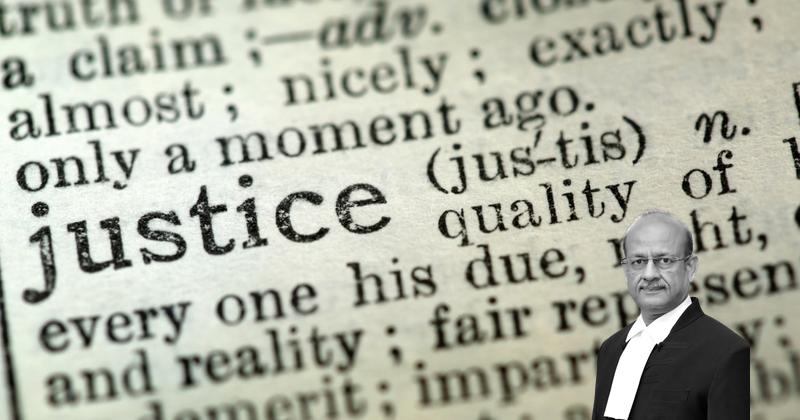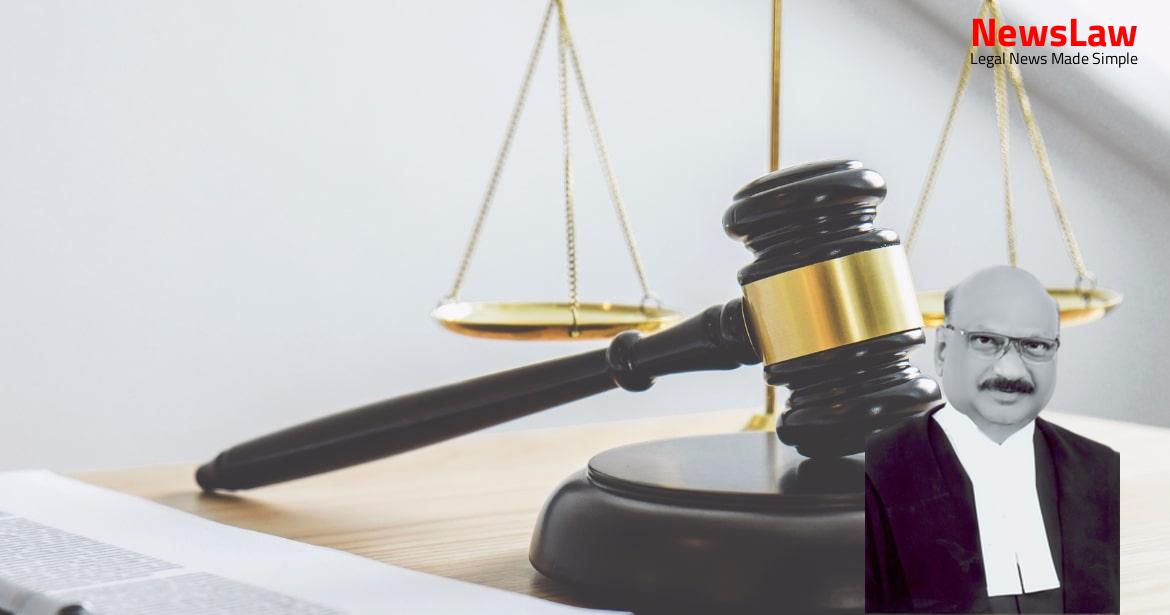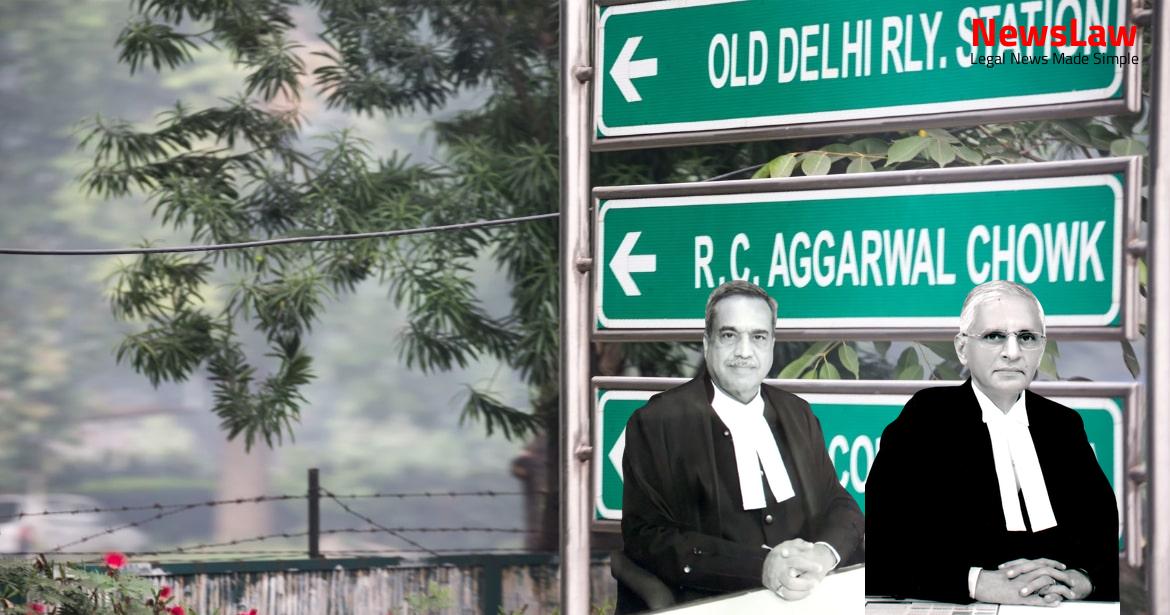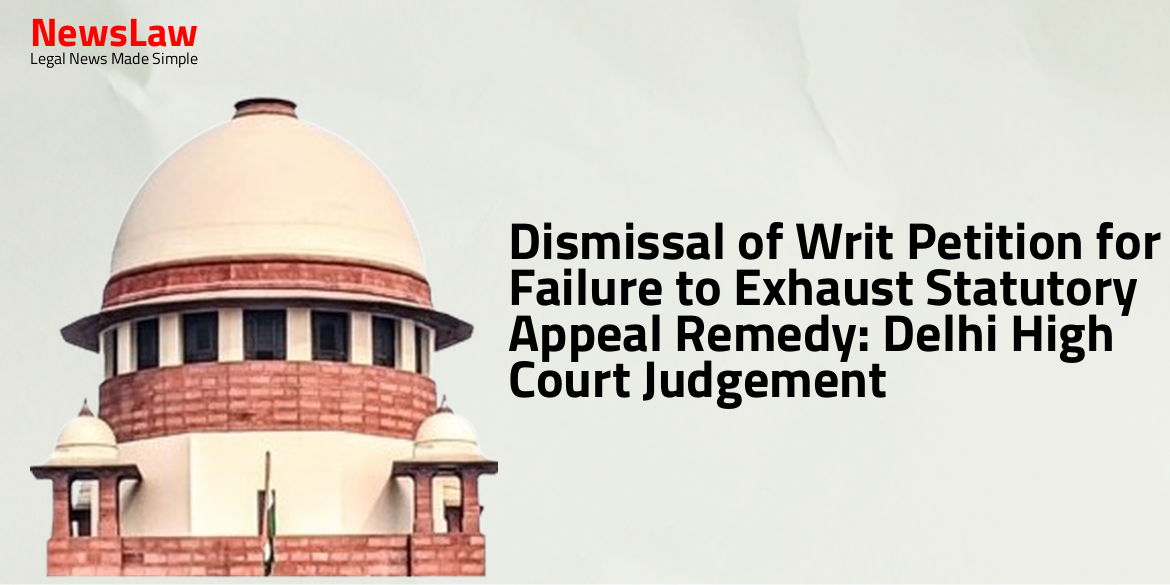National Company Law Tribunal (for short, ‘NCLT’), by an Order dated 27 June 2022, admitted the application filed by the respondent- Bank and declared a moratorium for the purposes referred in Section 14 of the IB Code. Thus, the facilities granted by the Syndicate Bank to the Corporate Debtor were fund-based (Overdraft Facility) and non-fund-based (Bank Guarantees). On 21 October 2022, this Court while issuing notice, recorded a statement of the learned senior counsel appearing for the appellant that a proposal for settlement under a One-Time Settlement Scheme has been submitted to the first respondent-Bank and a sum of Rs.6 crores has been deposited with the first respondent-Bank. He invited our attention to a letter dated 5 November 2018 addressed by the Executive Engineer on behalf of the Government of Telangana requesting the Bank to extend the Bank Guarantees furnished by the said Bank on the request of the Corporate Debtor. The learned counsel invited our attention to the interim order dated 24 April 2020 passed by the learned Single Judge of the Telangana High Court by which the first respondent-Bank was restrained from taking coercive steps pursuant to letters of invocation of Bank Guarantees including handing over of Demand Drafts to the State Government.
He, therefore, submitted that once NCLT is satisfied that there is a financial debt and a default has occurred, it is bound to admit an application under Section 7.
Under the Explanation to Section 7(1), a default is in respect of a financial debt owed to any financial creditor of the corporate debtor — it need not be a debt owed to the applicant financial creditor. The moment the adjudicating authority is satisfied that a default has occurred, the application must be admitted unless it is incomplete, in which case it may give notice to the applicant to rectify the defect within 7 days of receipt of a notice from the adjudicating authority.
Under Section 8(2), the corporate debtor can, within a period of 10 days of receipt of the demand notice or copy of the invoice mentioned in sub-section (1), bring to the notice of the operational creditor the existence of a dispute or the record of the pendency of a suit or arbitration proceedings, which is pre-existing—i.e. On the other hand, as we have seen, in the case of a corporate debtor who commits a default of a financial debt, the adjudicating authority has merely to see the records of the information utility or other evidence produced by the financial creditor to satisfy itself that a default has occurred. I CICI Bank, (2018) 1 SCC 407, paras 28 and 30 : (2018) 1 SCC (Civ) 356], a two-Judge Bench of this Court has explained the ambit of Section 7 IBC, and held that the adjudicating authority only has to determine whether a “default” has occurred i.e.
Under Rule 4, the application is made by a financial creditor in Form 1 accompanied by documents and records required therein.
The moment the adjudicating authority is satisfied that a default has occurred, the application must be admitted unless it is incomplete, in which case it may give notice to the applicant to rectify the defect within 7 days of receipt of a notice from the adjudicating authority. Under sub-section (7), the adjudicating authority shall then communicate the order passed to the financial creditor and corporate debtor within 7 days of admission or rejection of such application, as the case may be. The respondent also noted that of the claims of the original petitioners who have moved the adjudicating authority, only 13 have been settled while, according to it “40 are in the process of settlement and 39 are pending settlements”. The adjudicating authority also held that since the process of settlement was progressing “in all seriousness”, instead of examining all the individual claims, it would dispose of the petition by directing the respondent to settle all the remaining claims “seriously” within a definite time-frame.
Thus, once NCLT is satisfied that the default has occurred, there is hardly a discretion left with NCLT to refuse admission of the application under Section 7. (12) “default” means non-payment of debt when whole or any part or instalment of the amount of debt has become due and payable and is not [paid] by the debtor or the corporate debtor, as the case may be; ”
Also Read: https://newslaw.in/case-type/criminal/legal-analysis-of-judgement-on-discharge-in-a-murder-case/
Thus, even the non-payment of a part of debt when it becomes due and payable will amount to default on the part of a Corporate Debtor . For example, when admission is opposed on the ground of existence of an award or a decree in favour of the corporate debtor, and the awarded/decretal amount exceeds the amount of the debt, the adjudicating authority would have to exercise its discretion under Section 7(5)( a ) IBC to keep the admission of the application of the financial creditor in abeyance, unless there is good reason not to do so.
In this case, the adjudicating authority (NCLT) has simply brushed aside the case of the appellant that an amount of Rs 1730 crores was realisable by the appellant in terms of the order passed by A PTEL in favour of the appellant, with the cursory observation that disputes if any between the appellant and the recipient of electricity or between the appellant and the Electricity Regulatory Commission were inconsequential.” (emphasis added) 12.
Hence, the decision in the case of Vidarbha Industries cannot be read and understood as taking a view which is contrary to the view taken in the cases of Innoventive Industries and E.S. As the Corporate Debtor did not honour the said notice, the original application for recovery has been filed by the first respondent before the Debt Recovery Tribunal at Hyderabad. In view of the said letter, on 9 January 2020, the Corporate Debtor addressed a letter to the Syndicate Bank mentioning that the issue relating to the pre-closure of the two contracts granted by the State Government was under the active consideration of the State Government. Moreover, there is no finding recorded in the interim order that the Corporate Debtor is not liable to pay the dues. Oka)………………………
Also Read: https://newslaw.in/case-type/criminal/protection-of-public-servants-in-criminal-proceedings/
J.
Case Title: M. SURESH KUMAR REDDY Vs. CANARA BANK (2023 INSC 521)
Case Number: C.A. No.-007121 / 2022



